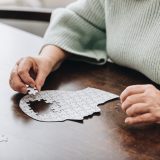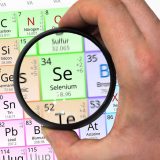When a good night’s sleep fails to deliver a sufficient amount of daily energy, a hunt for the culprit ensues. Even though the possible sources of fatigue are numerous, several frequently encountered causes that must be ruled out include a vitamin deficiency, side effects from medications, viral infection and chronic disease. However, extreme tiredness could also be the result of a mold allergy. Since mold allergies are relatively common, it might be worth your while to determine if mold is the cause of your fatigue.
About Mold
A fungus that begins with a spore instead of a seed, mold differs from plants and animals in their reproductive and growth cycles. Mold spores are spread through the air via wind or moisture. Some spores are released in dry, windy weather, while others are released in high humidity.
Despite how the spores are released, mold growth is stimulated by warmth and high humidity – so they tend to proliferate most during hot and humid weather. Mold spores can be found just about anywhere. Often located in (or near) bathrooms and kitchens, mold tends to thrive in dark, moist, bacteria-laden areas.
Signs of a Mold Allergy
Similar to an allergy to dust or pollen, many people have an immune response to mold. When the immune system detects it as foreign, a wide range of symptoms could indicate a mold allergy. Fatigue is one of the most commonly reported problems stemming from mold exposure. In addition to low energy, several of the following complaints accompany mold sensitivity:
- Headaches
- Jitteriness
- Inability to concentrate
- Anxiety
- Wheezing
- Coughing
- Runny nose or congestion
- Fever
- Skin rash
- Itching
- Nausea
- Eye irritation
- Sneezing
- Asthma
Furthermore, the following six indicators point to a potential mold allergy:
- Feeling worse on rainy, humid days
- Feeling worse when raking leaves or mowing grass
- Feeling worse in wet places like in the woods, a damp basement or humid attic
- Feeling better in an air-conditioned room
- Feeling better at the beach, in the desert or in high mountain elevations
- Feeling better when the temperature is below freezing
Mold Control
If fungi exposure is determined to be the reason for your lack of energy, the best way to regain your vigor is mold control. Nobody can completely avoid all mold sources. However, the following suggestions to reduce dampness can help minimize mold growth:
- Fix leaks – Locate any plumbing leaks and repair them properly.
- Use an exhaust fan – Since moisture tends to accumulate in bathrooms and kitchens. Use an exhaust fan during bathing and cooking.
- Minimize humidity – When appropriate, use a dehumidifier to control moisture in the air. Aim for a humidity level under 40 percent. Vent warm, damp air from laundry machines to the outside.
- Clean moisture traps – Frequently scrub garbage cans, refrigerator door gaskets, appliance drip pans, tubs, sinks and other areas that get wet with a bleach/water solution.
- Keep your home’s perimeter clear – Promote ground water drainage away from your house by removing leaves and dead vegetation near the foundation and in the rain gutters.
- Trap airborne spores – Central air conditioning with a HEPA (high efficiency particulate air) filter attachment will help trap mold spores. Experts tout air conditioning with a HEPA filter to be more effective than electrostatic air-cleaning devices and freestanding air cleaners.
Many individuals don’t realize that their extreme fatigue could be due to an aggravated mold allergy. While a serious mold problem is best handled by a professional, smaller spore communities can be squashed by the mold control suggestions given. Upon recognizing a sensitivity to mold, discovering a mold source in your environment and minimizing your subsequent mold exposure, you might be able to put your previously inexplicable fatigue behind you.




